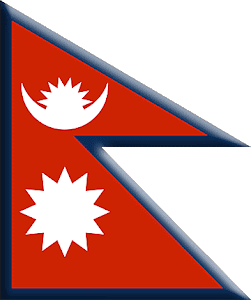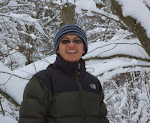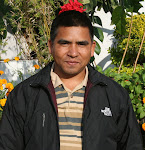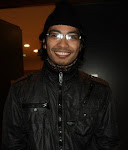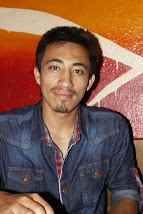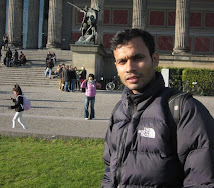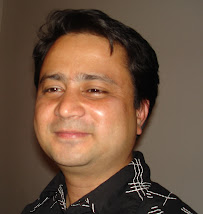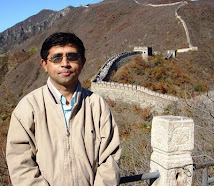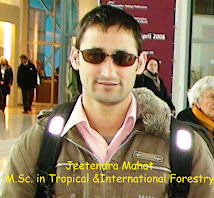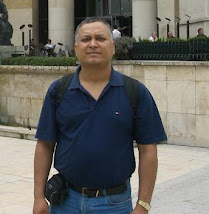SPIEGEL: Mr. Venter, when the elite among gene researchers undertook the decoding of the human genome, you were their greatest enemy. They called you "Frankenstein," "blood sucker," "Darth Venter" and even "asshole." Why do you attract so much hostility?
SPIEGEL: Every area of science is competitive. But it doesn't lead to that kind of hostility in all areas.
Venter: The human genome project was completely different, it was supposed to be the biggest thing in the history of biological sciences. Billions in government funding for a single project -- we had never seen anything like that before in biology. And then a single person comes along and beats scientists who have been working on it for years. It is no wonder they didn't like that.
SPIEGEL: Wasn't it more the case that your opponents were afraid that you, as a profit-oriented entrepreneur, would make the human genome your own private property?
Venter: That is totally absurd; and you know it. Initially, Francis Collins and the other people on the Human Genome Project claimed that my methods would never work. When they started to realize that they were wrong, they began personal attacks against me and made up these things about the ownership of the genome. It was all absurd.
SPIEGEL: So it was all just propaganda?
Venter: At the end of the day, it is an argument over nothing. But this battle between common good and commerce -- that is the kind of story that sells newspapers.
SPIEGEL: Was the importance of gene patents, which fueled the dispute, exaggerated?
Venter: First of all, nobody has made any serious money off patents on human genes except patent attorneys. Second, I do not hold any patents on human genes. You can do a patent search. Then you can convince yourself.
SPIEGEL: On June 26, 2000, you had a major event -- you met with Francis Collins at the White House …
Venter: … yeah, it was obviously a big historic event. It was pretty stunning, making an announcement at the White House to the entire world. It was a big triumph for me and my team because it proved that we had won.
SPIEGEL: At the time, none of you had won. Nobel Prize recipient John Sulston, one of the researchers of the government-funded genome project wrote …
Venter: … What was his quote? That he and his people were a bunch of phonies who had nothing?
SPIEGEL: In essence, he wrote that you both had nothing.
Venter: He had no idea what we had. Sulston has proven he is not the most credible source on anything other than his own data. He said they were a bunch of phonies, we have to take him at his word on that.
SPIEGEL: It seems to have been the only time in history that a new scientific discovery was announced officially by the government. How did that unusual agreement in the White House take shape?
Venter: It was a political compromise because the people at the public Human Genome Project were afraid we would announce what we had. And we were afraid they would use the White House to make it look like they had won.
SPIEGEL: It appeared at the time that you had agreed to be undecided. Do you now view yourself as the winner of the race?
Venter: I don't think it really matters.
SPIEGEL: The New York Times later declared the public Human Genome Project to be the victor. Can you really claim that you don't care?
Venter: Oh, the New York Times! How do you define the "winner" in this case? What is decisive is that it is our data that is in the databases -- not the data the consortium put together back then.
SPIEGEL: The genome project has been called the Manhattan Project or Moon Landing of its era. It has also been said that knowledge of the genes will change the future of humanity and become a "main driver of the world economy."
Venter: Who said that? I didn't. That was the people at the consortium.
SPIEGEL: You're wrong. You made all those statements in an interview with DER SPIEGEL in 1998.
Venter: Really? Those are Francis Collins' lines. So I may have said that that's how he describes it. I, on the other hand, have always said, "This is a race from the starting line to the finish."
SPIEGEL: The genome project hasn't just raised hopes -- but also worries. Do you understand those concerns?
Venter: Yes. There are two groups of people. People either want to know the information or they prefer to live like an ostrich with their head in the sand, not knowing anything. The fear is based on the ill-founded belief that those who know the DNA sequence also know every aspect of life. This nonsense has been spread by the same geneticists who were afraid of the commercialization of this stuff. From the time of the first few discoveries of gene defects -- Huntington's disease, for example, everybody thought that if you knew your genome, you would know when you would die and what you would die from. That is nonsense.
SPIEGEL: So the significance of the genome isn't so great after all?
Venter: Not at all. I can tell you from my own experience. I put my own genome on the Internet. People had the notion this was the scariest thing out there. But what happened? Nothing.
SPIEGEL: Nevertheless, Jim Watson, the co-discoverer of the DNA double helix, has said he doesn't want to know which variant of the so-called ApoE gene he has -- it could say something about his risk for developing Alzheimer's, and he's afraid of that …
SPIEGEL: Are you interested in finding out what ApoE variant you have?
Venter: I know it. And according to it, I have a slightly increased risk for Alzheimer's disease. But it impresses me little because I could have dozens of other genes that counteract it. Because we do not know that, this information is meaningless.
SPIEGEL: And what about the fears about the abuse of gene data through insurers or employers, for example? Do you see that as sheer hysteria?
Venter: Abuse is not a question of whether the data is available. It is an issue of laws. You can't do anything to change the availability of genetic data. Look at this bottle that you have touched -- that's all I need to obtain your entire genetic information.
SPIEGEL: How much would you be able to learn about us by doing so?
Venter: If anything, we don't really know how to read the genome and it can't tell us very much right now. So what's the ethical debate about?
SPIEGEL: The decoding of your personal genome has so far revealed little more than the fact that your ear wax tends to be moist.
Venter: That's what you say. And what else have I learned from my genome? Very little. We couldn't even be certain from my genome what my eye color was. Isn't that sad? Everyone was looking for miracle 'yes/no' answers in the genome. "Yes, you'll have cancer." Or "No, you won't have cancer." But that's just not the way it is.
SPIEGEL: So the Human Genome Project has had very little medical benefits so far?
Venter: Close to zero to put it precisely.
SPIEGEL: Did it at least provide us with some new knowledge?
Venter: It certainly has. Eleven years ago, we didn't even know how many genes humans have. Many estimated that number at 100,000, and some went as high as 300,000. We made a lot of enemies when we claimed that there appeared to be considerably fewer -- probably closer to the neighborhood of 40,000! And then we found out that there are only half as many. I was just in Stockholm for the 200th anniversary of the Karolinska Institute. The first presentation was about the many achievements the decoding of the genome has brought. Then I spoke and said that this century will be remembered for how little, and not how much, happened in this field.
SPIEGEL: Why is it taking so long for the results of genome research to be applied in medicine?
Venter: Because we have, in truth, learned nothing from the genome other than probabilities. How does a 1 or 3 percent increased risk for something translate into the clinic? It is useless information.
SPIEGEL: There are hundreds of hereditary diseases that can be traced to defects in individual genes. You can determine a lot more than just probabilities through them. But that still hasn't led to a flood of new treatments.
Venter: There were false expectations. Take Ataxia telangiectasia, for example, a horrible disease. The nervous system degenerates, and people who have it often die in their early teens. The cause is a defect in a single gene, but it is a developmental gene. If your body is built in the wrong way, then you can't just take a magic pill to rebuild it. If your brain is wired wrong, then it is wired wrong.
SPIEGEL: Who is to blame for those false expectations?
Venter: We were simply always looking at single genes because they were the only genes we had. When people lose their keys at night, they look under the lamp post. Why? Because that's where you can still see something.
SPIEGEL: But the keys are really located in the dark?
Venter: Exactly. Why did people think there were so many human genes? It's because they thought there was going to be one gene for each human trait. And if you want to cure greed, you change the greed gene, right? Or the envy gene, which is probably far more dangerous. But it turns out that we're pretty complex. If you want to find out why someone gets Alzheimer's or cancer, then it is not enough to look at one gene. To do so, we have to have the whole picture. It's like saying you want to explore Valencia and the only thing you can see is this table. You see a little rust, but that tells you nothing about Valencia other than that the air is maybe salty. That's where we are with the genome. We know nothing.
SPIEGEL: Do you think there will be a time when you can extract all this information to yield real medical results?
Venter: For that to happen we need a lot more information: Information about your body's chemistry, your physiology, your complete medical history, your brain and your entire life. We would need to do that a million times on different people and correlate that data with their genetic information.
SPIEGEL: Will that lead in the end to the kind of personalized medicine that genetic researchers have always touted? Each person would get his or her own personal treatment that is tailored precisely to that person's genetic make-up?
Venter: That was another one of these silly naïve notions that was out there. It's not, 'Oh, we know your genome, we're going to make this drug for you.' That will never happen. It is more important that you use the information in the genome about your personal risks and reduce them through intelligent behavior.
SPIEGEL: You have complained about how naïve genome researchers were in the beginning. Will future generations eventually make fun of us in the same way for how naïve we still are today?
Venter: Only time will tell. Nevertheless, we now have what is going to be one of the most important tools for interpreting the human genome: the first synthetic cell. It will enable us to ask questions that would have been inaccessible before.
SPIEGEL: When no progress was made through the reading of the genome, you shifted to rewriting it. You sequenced the entire genome of a bacteria and used it in another cell. How is the microbe you created doing today?
Venter: It's sitting in a freezer, doing extremely well. We'll keep it for the historians.
SPIEGEL: You stored a code in the genome of this cell. Has anyone decoded it?
Venter: Yes, it is the first genome in the world to include an e-mail address. So far, 50 scientists have cracked the code and answered us.
SPIEGEL: Many fear what might happen if humans craft new life forms. They repeatedly say that you are playing God …
Venter: Yes, and I find them frightening. I can read your genome, you know? Nobody's been able to do that in history before. But that is not about God-like powers, it's about scientific power. The real problem is that the understanding of science in our society is so shallow. In the future, if we want to have enough water, enough food and enough energy without totally destroying our planet, then we will have to be dependent on good science.
SPIEGEL: Some scientist don't rule out a belief in God. Francis Collins, for example …
Venter: … That's his issue to reconcile, not mine. For me, it's either faith or science - you can't have both.
SPIEGEL: So you don't consider Collins to be a true scientist?
Venter: Let's just say he's a government administrator.
SPIEGEL: When can we anticipate seeing the next tailor-made microbes from your laboratory?
Venter: Well, the goal is multifold. We have to start by creating minimal cells. A human cell is too complex -- we have no idea how any human cell works. We don't even know how the simplest bacterial cell works. We want to learn what the minimum cellular components are, so we're going to be taking out all the non-essential genes. But we're also trying to design new life forms for energy production, capturing carbon dioxide or to produce chemicals.
SPIEGEL: Wouldn't it be easier to modify existing bacteria using the established methods of biotechnology?
Venter: It isn't that simple. For example, there is no other way of creating a minimal cell. You can only add or take out genes at will if you have built the genome from scratch.
SPIEGEL: How long does it take to create such new forms of cells?
Venter: Right now we have the technology to make several a day, and the goal is to make a million a day.
SPIEGEL: How long will it be until the life forms you have created start producing fuel for our cars?
Venter: Not only gasoline. Plastic, asphalt, heating oil: Everything that we make from oil will at some point be made by bacteria or other cells. Whether that is in five, 10 or 20 years is unclear. Why don't we have fuel now other than alcohol from microbes? It's because nothing evolved that can produce great amounts of biofuel out of CO2. That's why we have to make it.
SPIEGEL: ExxonMobile, at the very least, appears to be convinced by your vision …
Venter: … yes, they are investing $600 million in the project, with half going to our partnership. It's a good round number. It's the same money that PerkinElmer gave me to decode the human genome. With it, we sequenced the human genome in nine months instead of many, many years. The public money that flowed into the Human Genome Project, above all, created an enormous, inflexible bureaucracy. And it is only because of private money that we can now sail across the ocean with this sailboat and discover 40 million genes -- there are only 41 million genes known to all of science. All you need are a few innovative ideas and independent funding to allow you to do things that other people can only dream about.
SPIEGEL: It took eight years from the time the first bacterial genome was decoded until the human genome was completed. How much time will elapse between the creation of the first synthetic bacteria and the creation of the first synthetic human?
Venter: There is currently no reason for us to synthesize human cells. I am, for example, a fan of the work that was done a short time ago that led to the decoding of the Neanderthal genome. But we don't need any more Neanderthals on the planet, right? We already have enough of them.
SPIEGEL: Mr. Venter, we thank you for this interview.
Interview conducted by Rafaela von Bredow and Johann Grolle
Read more...







